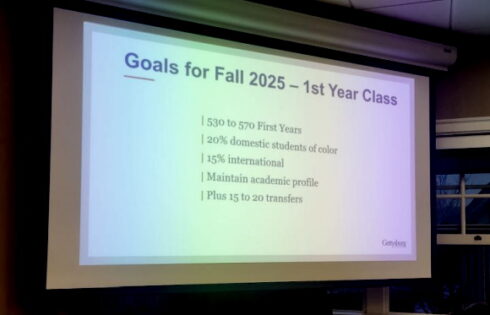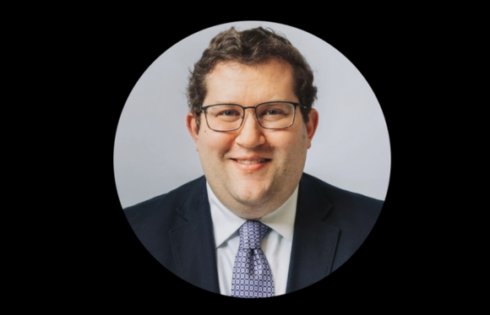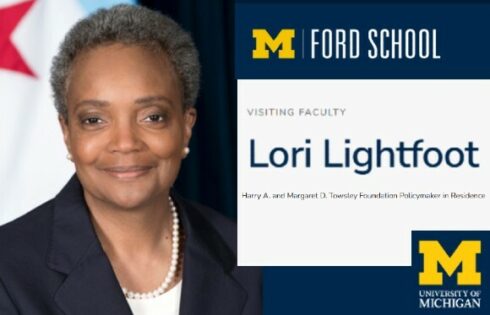
Gender is a choice on a spectrum, not a biological trait, college students are told
This year, college students across the country will be taught, sometimes from Day One, that being male and female is a choice, not a biological trait.
Whether it’s from the podium, inserted into the curriculum, integrated into orientation training, the message is clear: gender is fluid and a matter of preference.
Confused? Consider Oberlin College’s definition of gender: “A spectrum or constellation of different behaviors, attributes and identifications.” Or a recent announcement from UCLA that gender is a “spectrum.”
There is no shortage of recent examples that illustrate how these assertions play out on campuses nationwide.
Even before students get to campus they’re told gender is a choice. The University of California system’s new application now features six gender choices. It asks prospective students: “How do you describe yourself? (Mark one answer),” and applicants can pick from: “male; female; trans male/trans man; trans female/trans woman; gender queer/gender non-conforming; and different identity.”
The application also asks: “What sex were you assigned at birth, such as on an original birth certificate?” Only two choices are offered: male and female. The “assigned” terminology implies gender can be reassigned.
Once on campus, the mantra continues. Take the University of North Carolina at Chapel Hill, for example, which wasted no time reeducating its incoming freshmen on gender, promoting views that freshman Alec Dent said he found “disturbingly nonscientific.”
After skits intended to show the fluidity of traits generally identified with particular genders, Dent recalled: “The leaders proceeded to say that what society tells us about gender is wrong—that gender is fluid and so are the characteristics typically associated with genders.”
Event leaders even addressed the audience as “those who identify as male” and “those who identify as women,” Dent stated.
Over at George Washington University’s orientation last month, students were told to pick whatever gender pronoun best suited their perceived self-identity.
Once students get into class, many professors reinforce the notion.
Wesleyan University’s Transgender Theory course, for example, assigns several books that teach gender is fluid, among them: Judith Butler’s Undoing Gender, Riki Anne Wilchins’ Read My Lips: Sexual Subversion and the End of Gender, and Judith Halberstam’s F2M: The Making of Female Masculinity.
The course does not question the legitimacy of transgender theory but does take up questions such as “How can trans narratives become legible to social and political articulations of personhood?” the online class description states.
That’s one anecdote, but similar courses and reading materials are assigned in women’s and gender studies classes across the nation.
At the University of Pittsburg, students are taught genders can change over time, and officials released their “Gender-Inclusive/Non-Sexist Language Guidelines and Resources” document, encouraging professors to ask students to write down a preferred pronoun, such as he/she/they/zi/zie (although they are welcome to change their preference later).
The document also recommends doing away with “sexist” terms such as “freshman” and “congressman.” While the suggestions are not mandatory, the document’s authors warn that to disregard the suggestions would be as rude as criticizing a stranger’s clothes.
Other campuses that push the use of ze/zie and other made-up pronouns to promote gender fluidity include Harvard University, American University, the University of Vermont and the University of Wisconsin-Milwaukee.
At Oberlin College, its definitions of gender, sex, and sexuality clearly outline that gender is fluid and different from both sex and sexuality.
Oberlin’s summary says a “more accurate way of understanding gender” is as “a spectrum or constellation of different behaviors, attributes and identifications.” The paper defines gender as “that which a society deems ‘masculine’ or ‘feminine.'”
According to Oberlin, transgenderism “challenge(s) the pervasive bipolar gender system in a given culture.” A transgender person is “an individual who dis-identifies with their assigned birth gender and has their own internal sense of their gender identity.”
Underscoring this, a recent news release by the University of California Los Angeles claims that UCLA biologists can show scientifically that gender is actually a spectrum.
“There is a spectrum between male and female that often goes unrecognized and risks being obscured by stigma,” the report states. Sexual orientation and sex preference are influenced by biology, argue biologist Dr. Eric Vilain and clinical psychiatrist Dr. Vernon Rosario.
Vilain, director of the Center for Gender-Based Biology at UCLA, stated “society has categorical views on what should define sex and gender, but the biological reality is just not there to support that.”
Meanwhile, campuses such as Michigan State University Extension encouraged educators to create a gender-inclusive classroom environment and to “interrupt binary (either/or) notions of gender, normalize gender diversity, (and) question limited portrayals of gender.”
But there are prominent psychiatrists who disagree with the trending idea that transgenderism and gender fluidity is normal and healthy.
Dr. Paul R. McHugh, former psychiatrist-in-chief for Johns Hopkins Hospital and the hospital’s current distinguished service professor of psychiatry, argues transgenderism is a mental disorder.
These universities, however, do not encourage lively discussion about the legitimacy of the theory. Instead they teach students to accept transgenderism as scientifically sound.
Like The College Fix on Facebook / Follow us on Twitter
IMAGE: Shutterstock






Please join the conversation about our stories on Facebook, Twitter, Instagram, Reddit, MeWe, Rumble, Gab, Minds and Gettr.